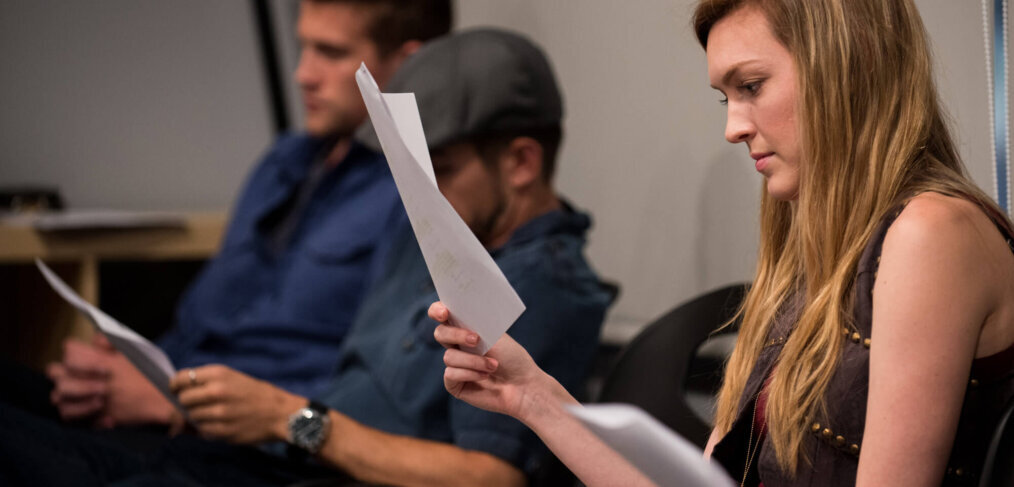Cast Type: A performer’s guide or a box to hide
Ana Capote
In the last year of my degree in Musical Theatre something I struggled to discover and find an answer was my cast type. I’m probably not alone on this. Every theatre kid goes through this at some point. What’s my brand? Which roles can I play? What’s my age range? What’s my type?
According to Actors’ Market founder and Backstage Expert Gwyn Gillis:
“Your type is a combination of the five criteria found on any breakdown when a role is being cast: sex, age range, physicality (race or the basics: short, tall, thin, heavy, light, dark), job title (mom, lawyer, cop, spy, teen, criminal), [and] personality trait (quirky, serious, intellectual, sexy, loud, innocent).” (Backstage)
For this, you have to be truly honest about your abilities and about who you are.
My friends who graduated before me would tell me: ‘This is the year you really find who you are as a performer and what’s your cast type’. At first, I thought: Great! Can’t wait to be that secure and confident about myself in the industry.
But the more I tried, the more disappointed I was. When I thought I finally had an answer I couldn’t help but feel frustrated. I knew my strengths and weaknesses but I’d like to think that I could do more than one type of character. Maybe I’m deluded but having a cast type felt limiting.
Joe Deer and Rocco Dal Vera, in their book, Acting in Musical Theatre: A comprehensive course, wrote that “The word ‘type’ gets used a lot in casting and can often carry negative connotations for performers because actors like to feel that they are completely transformable.”
It was when a friend of mine was doing a research project about this that I got even more curious. She has found that having a cast type is limiting and as actors, we should explore our versatility more.
This really resonated with me, even though I was struggling with whether I should give it a thought or focus my skills into a cast type that helped me get a job.
“Inevitably, that common understanding of who you are as an actor and what kind of roles you can best play will get you seen in the audition room and eventually cast.” (Backstage, How to Find Your Type as an Actor, Lindsay)
Of course, performers should know themselves, know what they feel more comfortable doing but they also shouldn’t feel frightened about getting out of their comfort zone and explore new things. You might miss something because you never tried.
This obviously doesn’t mean that you can play every single role: if the casting brief asks for a BIPOC performer and you are white, don’t apply; if they ask for a specific height or skill like juggling and you don’t fit the brief, then maybe it’s not the right casting for you.
Anyway, what I mean is, regarding aspects such as voice type, character personality, and whether it is a more dramatic character or the comedic one, don’t be afraid to go for it! Like onions and ogres, we, too, have layers. We are so versatile as people, so why should we limit ourselves as actors?
The need in human nature to label and put everything in boxes can lead, in this case, to an actor narrowing his job opportunities by stopping themselves from trying different characters or applying for diverse jobs. Something Noelle Scarlett states in her thesis, The truth about casting: “If an actor associates himself or herself with a single category (such as ingénue), it restricts his or her range for future opportunities”.
Personally, I’ve always been so scared of comedy songs. Give me a ballad, and I’ll cry as many times as you want, but if you ask me to be funny and make people laugh…that’s a whole other story.
Something I discovered when I took part of my friend’s practical research about cast types, where I had to sing one song that I thought was my cast type (ballad) and another one that wasn’t (yup, you guessed it, comedy one), was how surprised I was when the audience couldn’t tell which one was the ‘right one’.
I realized how much I was stopping myself out of fear. I had so much fun! I was actually, more in character in the funny one because I studied a lot more for it, due to my nerves.
So I guess, what I’m trying to say is, know yourself as yourself and as a performer. That way you are aware of your strongest points and also your weaknesses, so you can keep working on them. Never stop yourself from trying out in fear of failure.
Remember the old cliché: It’s out of your comfort zone that the magic happens!
